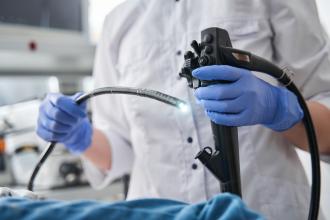PSP supports for quality improvement activities: Refreshed compensation policy, simplified certification process
The GPSC recognizes that doctors and health care team members invest significant time to ensure that practices run smoothly and efficiently. As family practice teams expand, practices are increasingly focused on quality improvement (QI) activities. To better support this work, the Practice Support Program (PSP) has updated how it compensates and certifies family physicians and eligible team members who engage in eligible QI activities.
Refreshed compensation policy
Based on physician feedback, PSP has refreshed the way GPs and team members are compensated for QI activities. Effective 15 June 2019, each eligible team member in a practice can receive compensation for up to 15 hours of work for participating in any eligible QI activity (for information on eligible and non-eligible QI activities visit www.gpscbc.ca/what-we-do/professional-development/psp). Team members eligible for compensation for QI activities include MOAs, allied health providers in private practice, and allied health providers employed by a GP practice. Team members who are employed or compensated by a health authority are ineligible.
For increased efficiency, doctors can now submit one form to claim a sessional payment for the hours spent on QI activities, and PSP team members are available to support doctors and practice teams to track their time throughout the process.
Simplified certification process
Effective 1 November 2019, PSP introduced a simplified certification process to replace the existing process for PSP learning modules, PSP small group learning sessions, and the GPSC patient medical home assessment (doctors currently participating in these services will not be affected). The new process will offer more credits, increased flexibility, and alignment with PSP’s updated compensation policy, detailed above.
The process will enable family doctors to earn up to three credits per hour, for up to 15 hours (maximum of 45 Mainpro+ credits) for activities including in-practice visits with an RST or physician peer mentor, development and implementation of action plans, and participation in PSP’s learning sessions.
In-practice coaching and mentoring
PSP Regional Support Teams (RST) and physician peer mentors are available to guide practices through a facilitation cycle that supports them in undertaking QI activities covered by the new compensation policy and new certification process. The facilitation cycle can help practices maximize efficiencies through activities like identifying changes in practice workflow, developing proactive patient recalls for common tests, and using data (including patient experience data) to inform practice improvements.
For more information contact a PSP Regional Support Team (see below), or email psp@doctorsofbc.ca.
—Alana Godin
Director, Community Practice and Quality, Doctors of BC
PSP Regional Support Teams
Fraser Health: psp@fraserhealth.ca
Interior Health: psp@interiorhealth.ca
Northern Health: liana.doherty@northernhealth.ca
Vancouver Coastal: pspsupport@vch.ca
Vancouver Island Health: rsp@viha.ca
hidden
This article is the opinion of the GPSC and has not been peer reviewed by the BCMJ Editorial Board.

